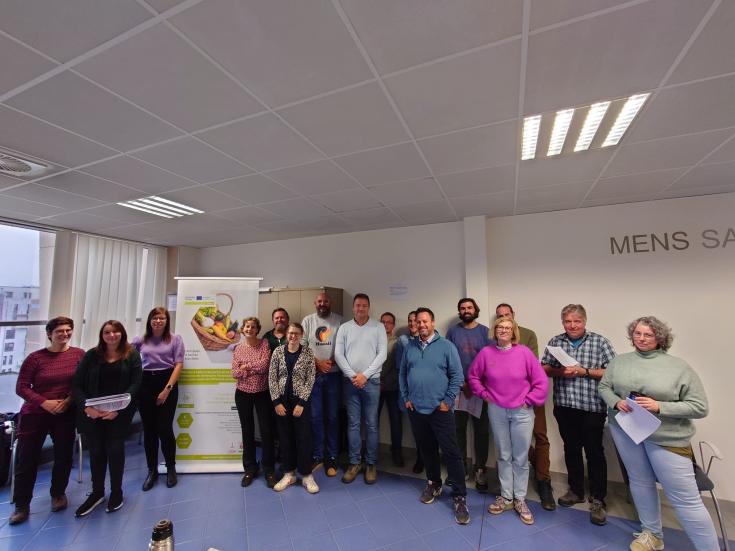EcoTeam to prevent food waste, in Liège
As a public service, the City of Liège, Belgium, has a duty to set an example. To this end, it has set up an Ecoteam made up of staff from various municipal departments. What they have in common is their interest in sustainable development. They therefore try to integrate this concept into their day-to-day work, as well as into the general operation of the municipal administration.
The 2024 annual plenary meeting of the EcoTeam Ville de Liège took place on October 9. Its aim was to take stock of past actions and define future ones.
It was in this context that the CIBUS project was presented. Thanks to a collective intelligence workshop, various levers for action to combat food loss and waste were discussed. The two main ones concern the management of shared refrigerators and the selective collection of food waste.
1. Better management of shared fridges: in the morning, many workers leave their midday snacks in the fridges provided. When they've finished eating, they sometimes put their leftovers back in. Unfortunately, snacks and leftovers are often forgotten once the working day is over.
Action Plan:
- for employees who use a computer: at the end of the day, set an automatic reminder in their calendar: "Don't forget to take your food out of the refrigerator!"; at the end of the day, receive an automatic notification from the IT department;
- for departments whose employees do not use a computer: designate a responsible person to issue an end-of-day reminder;
- Inform employees of the meaning of the various expiration dates (communicate to staff, post on refrigerators, etc.);
- At the end of the week, empty and turn off refrigerators for the weekend to reduce food waste and save energy; a space could be created for exchanging/making available uneaten food.
2. Selective collection of food waste: this is more essential than ever. 4-fraction sorting bins, including a fraction for organic waste, are installed in many communal buildings. Information sessions on the correct way to sort waste and what happens to organic waste once it has been collected have been given by EcoTeam agents to their colleagues. Maintenance staff have also been trained in this area. The aim is to continue introducing selective food waste collection in buildings not yet equipped with a sorting island.

